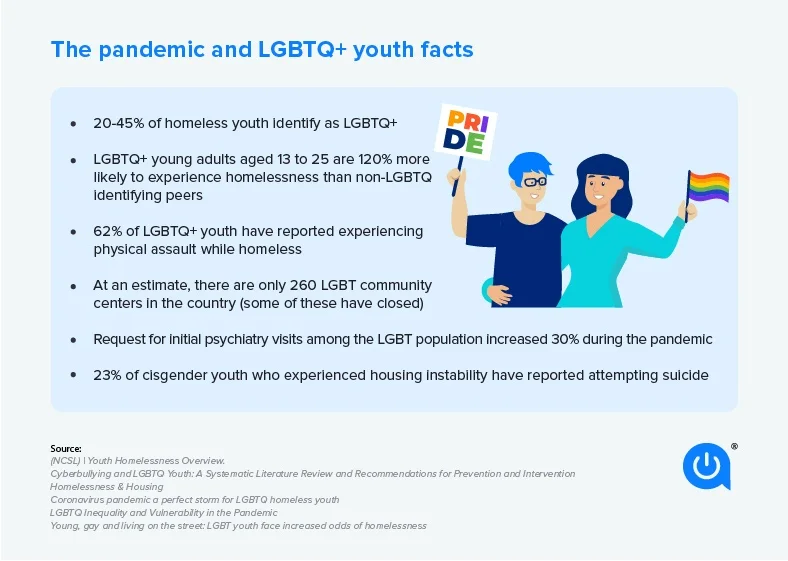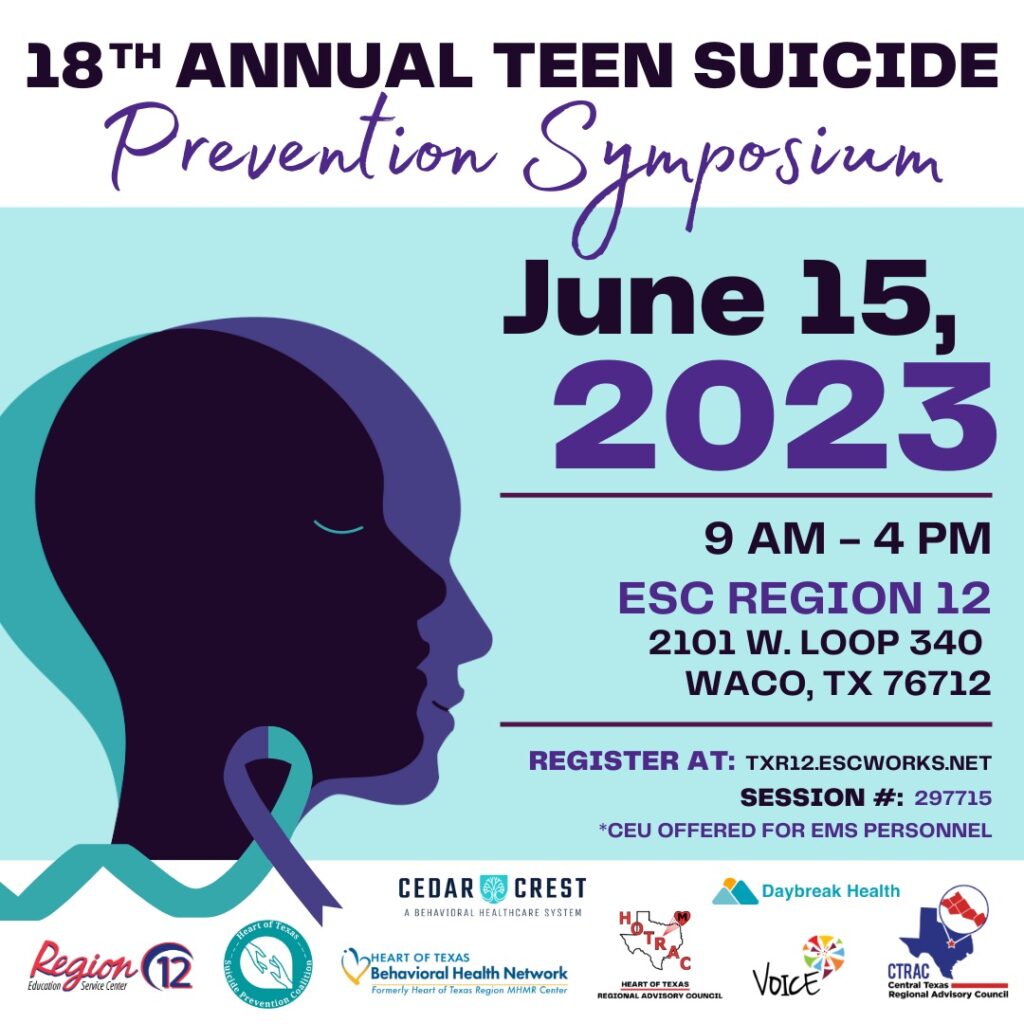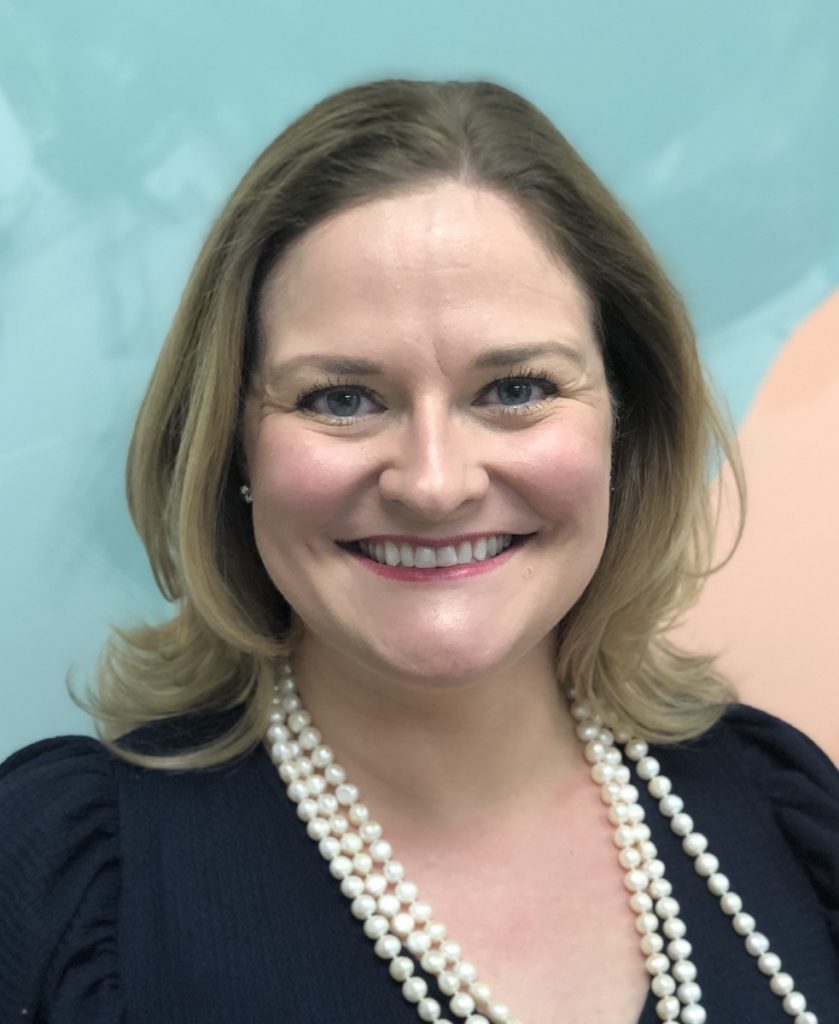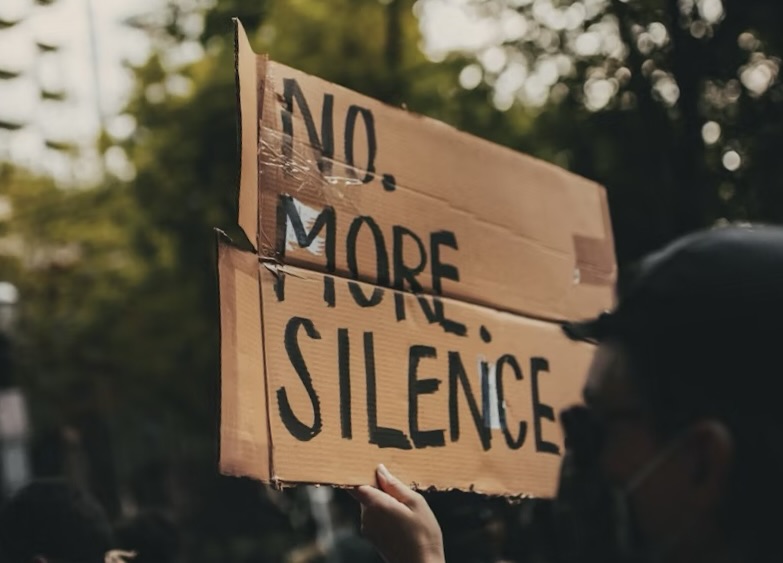If you or someone you know is struggling or in crisis, help is available. Call or text 988 or chat 988lifeline.org to reach the 988 Suicide & Crisis Lifeline.

September is upon us, and our duty this Suicide Awareness Month is to start conversations regarding mental health, spread hope to those in need, and spark meaningful action around one of the most urgent crises of our time. World Suicide Prevention Day is Wednesday, September 10th, but all month long, mental health advocates, prevention organizations, survivors, and allied community members are uniting to promote suicide prevention.
Suicide affects millions of people every year, yet too many struggle in silence. It starts with one conversation: ask someone how they’re doing and be ready to truly listen. No one has to face their battles alone. Whether you’re facing challenges, hoping to support a friend or loved one, or looking to help, your voice matters.

Here in Texas, there are three branches of the American Foundation for Suicide Prevention. AFSP of Central Texas is hosting an Out of the Darkness fundraiser walk in Waco on September 27, 2025. With over 350 participants already joined, this walk at Brazos Park East is the perfect way to participate in the community in a way that matters.
Help exists, and healing is possible. Inform yourself of warning signs for suicide, encourage open conversations about mental health, and connect people to proven treatments and resources.


Elizabeth Riley hails from Tennessee and is a graduate of English Literature and Professional Writing & Rhetoric from Baylor University. With passions in archival preservation, communal connection, and women in sports, she writes because it matters, with hopes of bridging villages and fostering revelry amongst them.
Written by: Robin Layton
As Americans regroup after two years of a pandemic lifestyle, studies are revealing that youth who are in the sexual and gender minority are experiencing depression and anxiety at a faster rate than other groups.
In fact, The Trevor Project 2022 National Survey on LGBTQ Youth Mental Health found that “45% of LGBTQ youth seriously considered attempting suicide in the past year,” with 60% of the youth who wanted mental health care in the past year unable to access it. The survey also found that 73% of LGBTQ youth reported having symptoms of anxiety.
Being an LGBTQ young person, unfortunately, means that during their critical adolescent years, they can often feel isolated and misunderstood, lacking the resources they need to maintain their mental health.
With pandemic-related measures in place across the country, youth are at an even greater risk of social isolation and depression. But online resources, including supportive and educational materials, can help them maintain mental and emotional health.
In a Catch-22, the internet can make this necessary information accessible, but only if you have access to the internet.
In this guide, Allconnect researchers take a look at available online resources, as well as address the digital divide and homeless issues within the LGBTQ youth community.

LGBTQ youth can face some unique challenges, such as higher rates of depression and suicide than their peers. A behavioral health report on youth.gov noted that suicide is the third leading cause of death among youth and young adults, and up to 33% of LGBTQ youth report having attempted suicide. LGBTQ high school students are also two to seven times more likely to commit suicide than their peers.
Along with all the pressures of growing into their own identities, they have increased risks of alcohol and drug use, bullying, peer pressure, depression, suicide attempts and high-risk sexual activities. LGBTQ youth and young adults may be kicked out of their homes, and often face homelessness.
Identifying as LGBTQ doesn’t cause depression or mental health issues. The cause is rooted within outside factors: Discrimination, family rejection, negative biases and bullying and hostile microaggressions that can lead to suicidal ideation, according to the report. When LGBTQ youth aren’t accepted for who they are, they have higher rates of stress, anxiety, depression, self-harm behaviors and other disturbances to mental health.
In addition, many LGBTQ youth are confronted with online bullying. Pre-pandemic, 32% of teens aged 14-17 spent about four hours in front of screens. As of June 2020, that number leaped to 62%, according to a Statista report.
Cyberbullying has made the internet a dangerous place for LGBTQ youth, and approximately 48.7% of LGBTQ students are victims of cyberbullying each year. This can be through private text messages or public posts on social media. Cyberbullying leads to high rates of psychological and emotional distress for LGBTQ+ youth, as well as low self-esteem, social isolation, depression and thoughts of suicide.
Other resource and advocacy groups
- The National Coalition of Anti-Violence Programs – The program offers direct services to survivors of all forms of violence and their circle of family and friends. They also work on policy and advocacy, and provide “free, holistic legal services to LGBTQ and HIV-affected survivors in all five boroughs of New York City in Family Court, Housing Court, Civil Court and with immigration matters.”
- GLAAD LGBTQ Resource List – GLAAD shares stories from the LGBTQ community and this list includes resources in politics, military, aging, legal and other sectors.
- The TrevorLifeline – Provides a national crisis intervention and suicide prevention lifeline for LGBTQ youth.
- Homelessness Help – Provides resources for homeless LGBTQ individuals in crisis, as well as provides a reporting platform for housing discrimination or violations.
- National Runaway Safeline – A hotline for youth who need someone to hear them, as well as for concerned adults.
- The LGBT National Youth Talkline – Free and confidential peer support for LGBTQ youth 25 and under.
- Trans Lifeline – Run by trans people, this lifeline provides peer support.
- National Suicide Prevention Lifeline – Free and confidential support for anyone in distress, suicide prevention and resources.
- TheRecoveryVillage.com – A free web resource that provides information about addiction, eating disorders and mental health issues.
- Drug Rehab USA – An accurate directory of LGBTQIA+ friendly drug and alcohol rehabilitation centers in the US
- Grow Resolve – Includes information like articles on substance use being more common in LGBTQ+ populations, ways to find local peer-led and queer-affirming support groups, guides to building a sober-supportive lifestyle, searches to finding insurance covering LGBTQ-affirming care, and tips on building sober-support networks
- Social Media Victims – An in-depth guide about the link between social media use and suicide as well as how you can assist a friend or child if you think they are suicidal.
Education Service Center Region 12 staff, educators, mental health advocates and care providers will join forces for the 18th Annual Teen Suicide Prevention Symposium from 9 a.m. to 4 p.m., Thursday, June 15 at 2101 W. Loop 340 in Waco.
ESC Region 12 and Partners Cedar Crest Residential Treatment Center and Daybreak Health want to gather educators, mental health providers and community members to learn and take action to help save the lives of challenged youth. The event will encourage awareness, intervention and prevention of teen suicide, regarded as the ‘preventable epidemic’ among Texas youth.
“This year’s event focuses on issues and trends impacting youth in many ways that educators, parents and care providers are seeing in our schools. From speakers on Pediatric Acute Onset Neuropsychiatric Syndrome (or PANS), to discussions about the US Surgeon General’s Advisory on Social Media and its Effect on Youth Mental Health, we are presenting cutting-edge topics that have a direct impact on our teens and their mental health,” said Jenipher Janek, a counseling services coordinator and lead for the Region 12 School Crisis Response Team.
The ESC Region 12 School Crisis Response Team includes ESC counselors and communication staff, school counselors and mental health advisors from the Heart of Texas Behavioral Health Network. The group coordinates grief response and provides logistical and communications support, and crisis recovery at no cost to area schools. In the last year, the team has responded to 18 calls to support educators and students affected by the loss of a student, employee or other crisis incident impacting school operations, including loss of life to suicide. Part of this work includes connecting schools to mental health providers and creating awareness about TCHATT, the Texas Child Health Access Through Telemedicine, which provides telemedicine or telehealth programs to school districts to help identify and assess the behavioral health needs of students and provide access to mental health services.
Event partners, expecting 80 attendees, hope to bring in even more educators, mental health providers, police officers, counselors and emergency services personnel. Advance registration ($45) is requested at: txr12.escworks.net/catalog/session.aspx?session_id=297715. Schools in the Counseling Services Membership may send staff at no additional fee. For more on ESC Region 12 Counseling Services and School Support, visit bit.ly/2023ESC12.
Additional event supporters include the Central Texas Regional Advisory Council, Heart of Texas Behavioral Health Network, Heart of Texas Regional Advisory Council, Heart of Texas Suicide Prevention Coalition and VOICE.

By Beth Olson
How did you learn about sex when you were a kid?
I love the way adults laugh and respond to this question.
“I just remember my parents leaving a book in my room.”
“Our football coach taught us … kind of.”
“I didn’t learn anything!”
Then I ask …

Raise your hand if you wish your parents or another trusted adult had talked with you more about sex?
Almost every hand goes up.
And how many of you are comfortable talking to teens about sex and sexual health?
Almost every hand goes down … very quickly.
What is it about sex that makes even the most supportive parent (or other trusted adult) freeze up? You love your kids. You want them to be healthy adults. You equip them with the values and skills needed to navigate so many complex situations. Yet, somehow, the simplest anatomy question can stop Super Mom in her tracks.
But why?
Because it’s hard to talk about sex when we have no frame of reference for how the conversation should go.
You’ve been taught your whole life that sex is not an acceptable topic of conversation. It’s private, and it’s not polite. Your parents probably didn’t talk to you about sex. Or if they did, it felt like an awkward scene from an ’80s sitcom. Adults don’t even talk to each other about sexual health. Think about it. When was the last time you casually chatted about birth control side effects at a nice dinner party?
Simply put — we don’t get much practice saying sexual things out loud.
So, let’s change that. Over the next few months, I’ll explore effective ways to talk with teens about sexual health, boundaries, and relationships; how to build trust with young people; and address questions parents often have about sex education.
Together, we can create the first generation of adults who will proudly raise their hands and say, “My parents and mentors worked together to teach me about sex.”
CDC: Talking with Your Teens about Sex: Going Beyond “The Talk”

Beth Olson is director of adolescent health initiatives for Prosper Waco.
The Act Locally Waco blog publishes posts with a connection to these aspirations for Waco. If you are interested in writing for the Act Locally Waco Blog, please email Ferrell Foster at ferrell@prosperwaco.org.
By Jeni Janek
“Counselors were on campus today in response to….”
We’ve heard it a hundred times in the media and cringe at the stories that follow these words, reporting the loss of yet another youth to the tragic phenomenon of suicide. What most do not realize is the impact and response that ensues and the taxing amount of time and emotional capital spent by educators and school personnel on campus who comfort survivors, wade through the shock and try to find answers that rarely come.
When a tragedy such as student or school employee death occurs (whether it be a suicide, accident or of natural cause) Education Service Center (ESC) Region 12’s Crisis Response Team launches into immediate action to serve on-site and/or behind the scenes to help those who are caring for their students and colleagues. Our kids grow up in our Texas schools, and a school is one big family–a loss is felt across campuses and reverberates in the community.
ESC Region 12 employs specialists whose job is to do one thing: serve educators and students. There are one-to-one counterparts for nearly every role in the typical school environment. Their duties range from conducting professional development to designing resources for school personnel as they instruct and care for the 161,000 school children in our region each day. One area of this work is to help our schools in their greatest time of need: when they lose a student or an educator.
In the last seven years, ESC Region 12 has worked in this role with others to ensure that school leaders and their teams have the resources and support needed to resume operations in the wake of fatalities. Suicide has been the number one reason that the ESC Region 12 Crisis Response Team responds to schools in our region. It has become an epidemic not only in Central Texas but in our state. The national average for suicide attempts among teens is 7 percent (according to the CDC’s Youth Risk Behavior Surveillance Survey, 2017), while Texas sits at 12 percent.
While suicide is an epidemic, it is a preventable one. It’s for this reason that the Education Service Center Region 12 has hosted the Teen Suicide Prevention Symposium for the last 14 years. ESC Region 12, Cedar Crest Residential Treatment Center, Providence Ascension Healthcare Network and the Methodist Children’s Home will present this year’s symposium on Thursday, June 13 at ESC Region 12, 2101 W. Loop 340 in Waco.
Medical and mental health speakers will share research and strategies for helping youth who struggle with suicidal ideation.
Social media continues to be a factor in teen suicide, but efforts to raise awareness about healthy practices and reporting options are making a difference in Central Texas schools. How else as a community can we make a difference? We can bring people together to discuss and implement strategies and resources that will help keep our kids safe. Educators may often be the first to see signs, but we as a community must reach out and offer more than supportive words.
Our children are living during an unprecedented age of technological advancement and interaction, but are still needing strong relationships (in school and in their communities) to help them grow up to be safe and healthy adults. They are depending on us to help them navigate challenges and not just survive, but to thrive.
Seats are available for $90 a participant, which includes a light breakfast and lunch. Click here to register: Suicide Symposium.
ESC Region 12 is a nonprofit service organization devoted to supporting educators and school personnel in their efforts to increase student achievement. We are passionate about helping schools of all sizes through effective professional development, expert assistance, direct services and alternative certifications. Click here for more about ESC Region 12.

Jeni Janek is the ESC Region 12 Crisis Response Team Leader and serves school counselors in the Region 12 area. She is a graduate of Stephen F. Austin with a Bachelor of Science degree in Rehabilitation and Psychology and received her Master degree in Counseling Psychology from Tarleton State University. Janek is a certified school counselor and a Licensed Professional Counselor (LPC). Jeni and her husband Chris live in West with their son, Trey. Their daughter, Mary Kate, is a junior at Texas A&M. Janek enjoys traveling, being outdoors, and relaxing on the back porch of their country home with her faithful dog, Beau.
The Act Locally Waco blog publishes posts with a connection to these aspirations for Waco. If you are interested in writing for the Act Locally Waco Blog, please email ashleyt@actlocallywaco.org for more information.
By Kelsey Scherer, Child Hunger Outreach Specialist
Since we know that Waco children and families struggle with hunger throughout the school year, we also know that hunger – like any other complex issue inextricably linked to poverty – doesn’t take a summer vacation. That’s why programs like the Summer Food Service Program, which we know locally as free Summer Meals for Kids, are critically important in our community. Waco ISD’s Child Nutrition Services has served free Summer Meals for over twenty years in partnership with school campuses, local churches, and nonprofit organizations, but this year, they’re doing things a little bit differently.
For the first time ever, Waco ISD’s Child Nutrition Services will be launching a new mobile meal program called “Meals on the Bus!” The program will address the longstanding barrier of inadequate access to transportation that has, for many years, been cited as a top reason that children are unable to visit summer meals sites and receive a nutritious meal. By bringing the meals directly to groups of kids at select locations, parents and advocates won’t have to worry about children crossing busy streets or traveling far from home in order to have access to a free lunch.
Two Waco ISD buses have been retrofitted with the collaboration of Waco ISD and STS, and will be fully equipped to serve hot meals to up to 40 children at a time. Children will line up and receive their meals inside the bus, where they will be able to sit in the bus seats and enjoy their meal safely and in the comfort of an air-conditioned space. Targeted stops will include apartment complexes and areas with high densities of children who could benefit from the meal. The site list will be announced soon, but several great partners, including the Waco Public Library System, are on board. Like any traditional Summer Meals site, this program provides limitless potential for partnership with churches, community organizations, state agencies, and others, who have the desire and flexibility to provide summer programming and enrichment to children on-site. Waco ISD will also operate many traditional, non-mobile sites throughout the summer, as always.
 This summer, you will also see Waco’s newest child nutrition program sponsor, CitySquare, launching their mobile Food on the Move program in Waco and beyond! The fact that this summer, Waco will be graced with the presence of not one, but two, food sponsors trying out new meal service models speaks to the willingness of groups to collaborate and coordinate services on behalf of Waco children and families. It also reflects the strength of growing efforts to innovate and come up with creative, strategic solutions to challenges within this space. CitySquare has done an excellent job of coordinating dinner meal service to over 900 children daily at participating afterschool programs in Waco since January 2014.
This summer, you will also see Waco’s newest child nutrition program sponsor, CitySquare, launching their mobile Food on the Move program in Waco and beyond! The fact that this summer, Waco will be graced with the presence of not one, but two, food sponsors trying out new meal service models speaks to the willingness of groups to collaborate and coordinate services on behalf of Waco children and families. It also reflects the strength of growing efforts to innovate and come up with creative, strategic solutions to challenges within this space. CitySquare has done an excellent job of coordinating dinner meal service to over 900 children daily at participating afterschool programs in Waco since January 2014.
Both of these programs have been in the planning stages for several years, but additional energy, fresh resolve, and technical assistance were brought to the table when the CHAMPS grant, sponsored by National League of Cities (NLC) and Food Research and Action Center (FRAC) and funded by the Walmart Foundation, was awarded to the City of Waco’s Parks and Recreation Department. The specific goal of this grant is to increase the number of children who participate in the federally-funded Summer and Afterschool Meals programs, and we have already seen those numbers increase through afterschool meals as a result of the work of this team (of which I am, of course, a totally unbiased member). I am thrilled that our city is being proactive in launching a new model for meal service that has potential to positively impact the wellbeing of children, teens, and families. I am encouraged that we have already seen similar programs be enormously effective in other Texas communities, and I look forward to helping these leaders try out this model in our own community, tailoring it to the specific needs and desires of our neighbors. I can’t wait to see all that will come of these unique partnerships, and see new partnerships and collaborations formed around these great programs.
Keep your eyes peeled for Waco ISD’s “Meals on the Bus!” and CitySquare’s “Food on the Move” serving free Summer Meals to kids and teens ages 18 and under in early June, and an advertising campaign beginning soon. If you want to get involved by supporting a Waco ISD or CitySquare site through volunteers and activities for kids, or helping spread the word, please contact Kelsey Scherer at kelsey_scherer@baylor.edu or 254-300-7801.
 Kelsey Scherer blogs for Act Locally Waco about Food Security and related issues. She is a Child Hunger Outreach Specialist at Texas Hunger Initiative’s Waco Regional Office. Kelsey is also a team member for the CHAMPS grant. The CHAMPS project aims to equip city leaders, anti-hunger groups, and the broader community to more effectively combat child hunger with the help of summer and afterschool meal programs.
Kelsey Scherer blogs for Act Locally Waco about Food Security and related issues. She is a Child Hunger Outreach Specialist at Texas Hunger Initiative’s Waco Regional Office. Kelsey is also a team member for the CHAMPS grant. The CHAMPS project aims to equip city leaders, anti-hunger groups, and the broader community to more effectively combat child hunger with the help of summer and afterschool meal programs.



